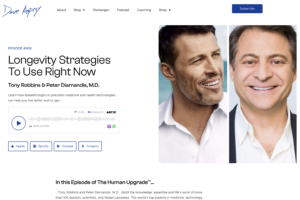In the go-go world of performance coaching it’s often about positive outlooks, planning for success, setting and reaching goals and basking in the physical and mental changes achieved via the daily practices and systems. Whew, sounds tiring, and maybe a little scary.
I guess we have to set the bar somewhere, but truth be told, do you really need performance coaching? Studies show that even just working out with someone can boost endorphins, and likely your results, so maybe it is the advantage you need. That sense of commitment is often the glue we need.
And what’s the alternative? Left to our own devices we pump up, practice, work, work, work and eventually fatigue. Those fitness gains, lost pounds and inches and positive outlooks wither back into a more (or less) comfortable pattern of excuses and “rational-lies” which lead to less activity, bad food and drink choices and whoops, square one.
It’s the stuff of yo-yo dieting, falling off wagons and placing blame which really sucks for self esteem. Kind of like the Aging Arc Myth we bust here regularly. It just doesn’t have to be that way.
In our practice we’ve found that two elements of the self-help process set people up for failure:
- It feels like work … workouts, working on ourselves, working on our attitudes and beliefs
- We’re told we have to do things to succeed, which is 180° from choose to
So who’s doing performance coaching well?

for high-performing actors.
Debra Wanger is an excellent guide for people seeking change. Her work started in coaching actors and spawned a book. Later she garnered certification from the Human Potential Institute and Mind Valley with a goal of guiding lives with methods outside typical performance coaching.
“I’m not here to yell at anyone and be a drill sergeant. We can make it fun, playful and still make positive change because Human Potential coaching is a lot more pulling than pushing clients to action. Clients don’t need to be told what to eat or that they should exercise. Everybody can google diet & exercise. What a good coach does is help their client figure out what habits will make give them the biggest bang for their buck instead of trying to change everything,” Wanger says.
We work on fitting those cornerstone habits into their real life. Consistent small habits make all the difference.”
So, one example (ThisMidlife works with coaches all across the U.S.) of performance coaching done well, but what about the others? How do we stay “on the wagon” to better selves? First off, understand you’re not broken, you don’t need fixing and we have lots of people and resources to help you correct your course. ThisMidlife is really a concierge service, so we’ll show you the way based on a questionnaire and intro discussion. From there you’ll get real counsel from real experts who can keep you on the path without the fallout.





